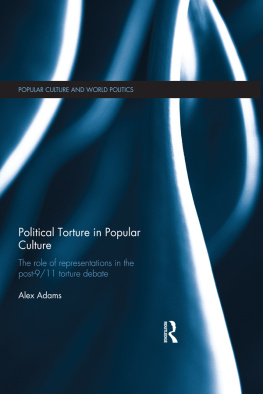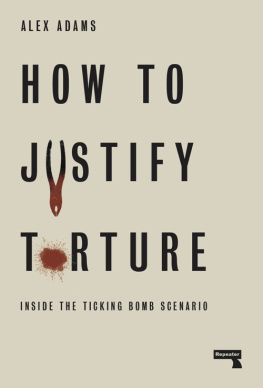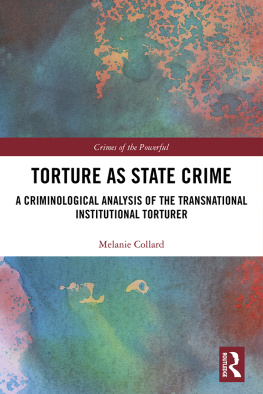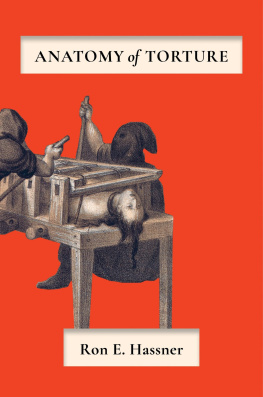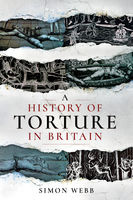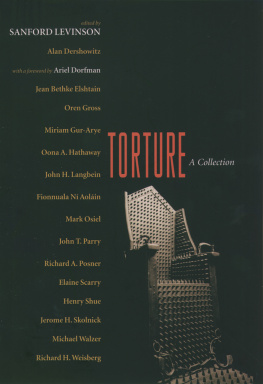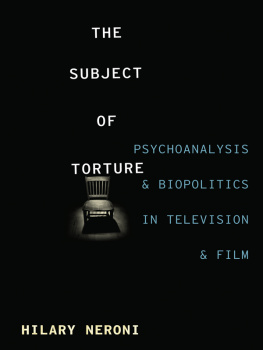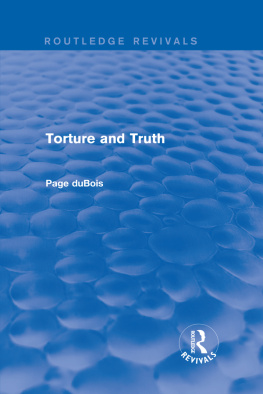Political Torture in Popular Culture
Political Torture in Popular Culture argues that the literary, filmic, and popular cultural representation of political torture has been one of the defining dimensions of the torture debate that has taken place in the course of the post-9/11 global war on terrorism. The book argues that cultural representations provide a vital arena in which political meaning is generated, negotiated, and contested.
Adams explores whether liberal democracies can ever legitimately perpetrate torture, contrasting assertions that torture can function as a legitimate counterterrorism measure with human rights-based arguments that torture is never morally permissible. He examines the philosophical foundations of pro- and anti-torture positions, looking at their manifestations in a range of literary, filmic and popular cultural texts, and assesses the material effects of these representations. Literary novels, televisual texts, films, and critical theoretical discourse are all covered, focusing on the ways that aesthetic and textual strategies are mobilised to create specific political effects.
This book is the first sustained analysis of the torture debate and the role that cultural narratives and representations play within it. It will be of great use to scholars interested in the emerging canon of post-9/11 cultural texts about torture, as well as scholars and students working in politics, history, geography, human rights, international relations, and terrorism studies, literary studies, cultural studies, and film studies.
Alex Adams completed his PhD in the School of English Literature, Language and Linguistics at Newcastle University, UK. He has contributed a number of journal articles and book chapters to recent publications.
Popular Culture and World Politics
Edited by Matt Davies, Newcastle University
Kyle Grayson, Newcastle University
Simon Philpott, Newcastle University
Christina Rowley, University of Bristol
Jutta Weldes, University of Bristol
The Popular Culture and World Politics (PCWP) book series is the forum for leading interdisciplinary research that explores the profound and diverse interconnections between popular culture and world politics. It aims to bring further innovation, rigor, and recognition to this emerging sub-field of international relations.
To these ends, the PCWP series is interested in various themes, from the juxtaposition of cultural artefacts that are increasingly global in scope and regional, local and domestic forms of production, distribution, and consumption; to the confrontations between cultural life and global political, social, and economic forces; to the new or emergent forms of politics that result from the rescaling or internationalization of popular culture.
Similarly, the series provides a venue for work that explores the effects of new technologies and new media on established practices of representation and the making of political meaning. It encourages engagement with popular culture as a means for contesting powerful narratives of particular events and political settlements as well as explorations of the ways that popular culture informs mainstream political discourse. The series promotes investigation into how popular culture contributes to changing perceptions of time, space, scale, identity, and participation while establishing the outer limits of what is popularly understood as political or cultural.
In addition to film, television, literature, and art, the series actively encourages research into diverse artefacts including sound, music, food cultures, gaming, design, architecture, programming, leisure, sport, fandom, and celebrity. The series is fiercely pluralist in its approaches to the study of popular culture and world politics and is interested in the past, present, and future cultural dimensions of hegemony, resistance, and power.
Understanding Popular Culture and World Politics in the Digital Age
Laura J. Shepherd and Caitlin Hamilton
Political Torture in Popular Culture
The role of representations in the post-9/11 torture debate
Alex Adams

